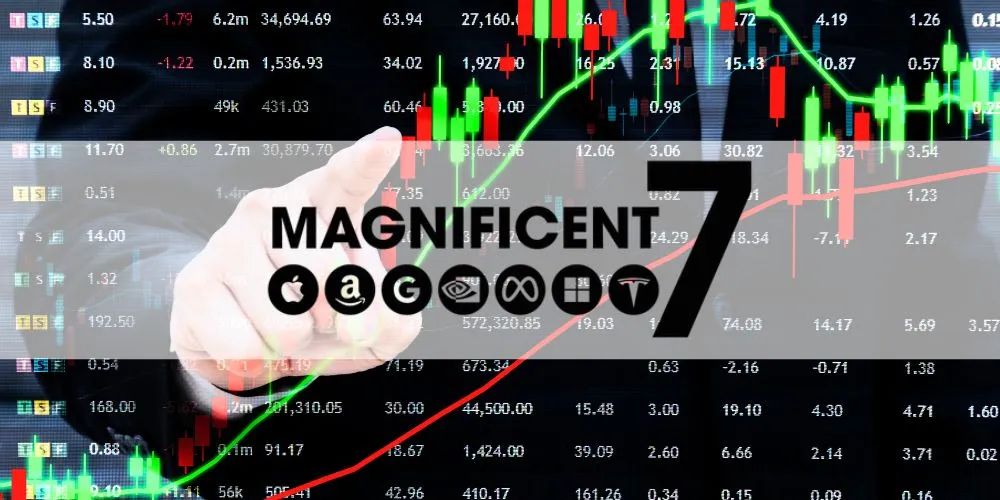The stock market’s performance in recent years has been dominated by a small group of mega-cap tech stocks dubbed the “Magnificent Seven”: Apple, Microsoft, Amazon, NVIDIA, Google, Meta, and Tesla. Their massive size and influence have driven the major indexes higher, but this also raises a critical question for investors. Are these giants a safe bet for continued dominance, or have they become so large that their future growth is limited?
The Power of Market Dominance
These seven companies dominate their respective industries. Microsoft owns the enterprise software and cloud space, while Google and Meta control digital advertising. Amazon is the king of e-commerce and cloud infrastructure. Apple has a fortress-like ecosystem of hardware and services. NVIDIA has a near-monopoly on AI chips. This dominance creates enormous cash flows and high barriers to entry for competitors, which is incredibly appealing to investors.
The Law of Large Numbers
The biggest challenge for the Magnificent Seven is the law of large numbers. When a company is already worth trillions of dollars, it becomes incredibly difficult to double in size again. It’s much easier for a $10 billion company to become a $20 billion company than it is for a $2 trillion company to become a $4 trillion company. Future growth rates will almost certainly be slower than they were in the past decade.
Concentration Risk in Your Portfolio
Because these stocks comprise a significant portion of indexes like the S&P 500, many investors are more exposed to them than they realize. If you own a simple index fund, a significant chunk of your money is riding on the performance of just these seven companies. This concentration is a major risk. If one or two of these giants stumble, it could pull the entire market down with it.
Where Will Future Growth Come From?
Each of these companies is aggressively pursuing new growth areas. For Microsoft, Google, and NVIDIA, the answer is artificial intelligence. For Meta, it’s a long-term bet on the metaverse. Apple is moving deeper into services, while Amazon continues to expand into new sectors, including healthcare and groceries. Tesla is pushing the boundaries of autonomous driving and robotics. The success of these new ventures will determine their future growth and development.
A Strategy for Prudent Investors
It’s unwise to bet against the Magnificent Seven entirely, as they are powerful and innovative companies. However, it’s also risky to be over-exposed. A prudent strategy is to ensure your portfolio is well-diversified. Complement your holdings in these mega-caps with investments in small- and mid-cap stocks, international markets, and other sectors of the economy to reduce your concentration risk.
Conclusion
The Magnificent Seven have earned their place at the top of the market. Still, their past performance is no guarantee of future results. While they remain formidable companies, investors must be aware of the law of large numbers and the risks of a concentrated portfolio. A balanced approach is key to benefiting from their strength without being overly dependent on their continued success, which may be slowing.





